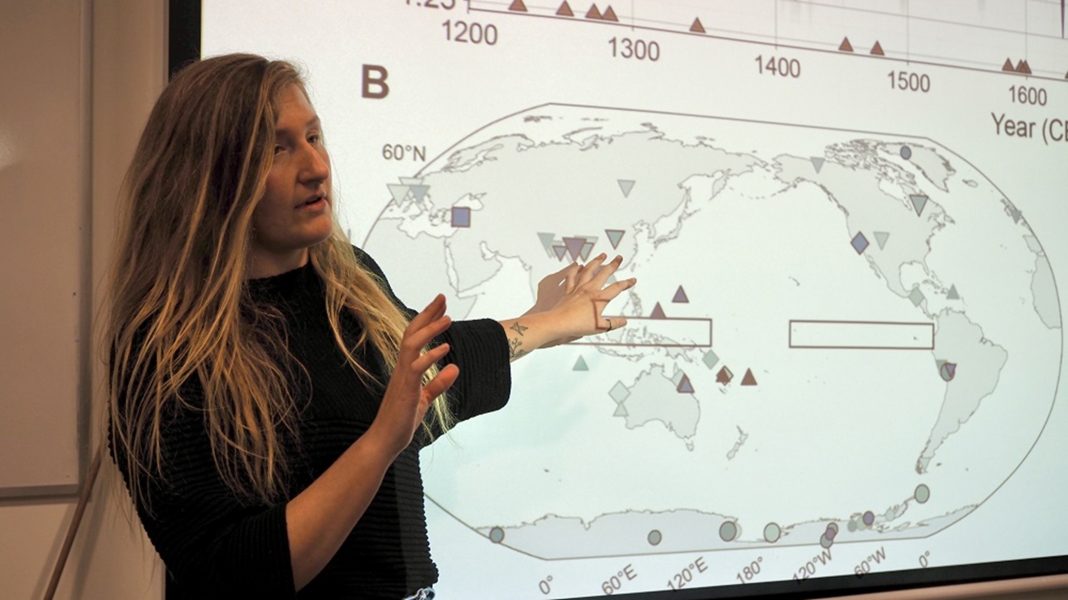Australia could see more multi-year El Niño and La Niña events, according to an international team of researchers including a scientist from the Australian National University (ANU).
Dr Georgy Falster from ANU said changes to the Pacific Walker Circulation – shifts in atmospheric patterns above the Pacific Ocean – could cause El Niño and La Niña events that last for two to three years.
“After Australia saw severe flooding and rainfall from a rare three-year La Niña event, our research has found that one of the key drivers of these events is changing, with slightly slower transitions between La Niña and El Niño events,” Dr Falster said.
Dr Falster, a Research Fellow at the ARC Centre of Excellence for Climate Extremes, started this research as a Postdoctoral Research Associate at Washington University in St. Louis.
“The circulation of the atmosphere over the Pacific Ocean has changed. This means in the future we could see longer La Niña or El Niño events as the atmospheric flow above the Pacific Ocean switches more slowly between La Niña and El Niño phases.
“That could exacerbate the associated risks of drought, fire, rains, and floods.
“It’s also more likely we’ll see a longer gap separating El Niño and La Niña, meaning dry El Niño years are less likely to be followed straight away by wet La Niña years.”
The researchers also found that volcanic eruptions can temporarily weaken the Walker Circulation, leading to El Niño-like conditions.
“The tropical Pacific has an outsized influence on global climate,” study co-author Sloan Coats, from the University of Hawai‘i, said.
“Understanding how the Pacific Walker Circulation is affected by climate change will enable communities across the Pacific and beyond to better prepare for the challenges they may face in the coming decades.”
The scientists used data from ice cores, trees, lakes, corals and caves around the world to find out how the weather and climate of the Pacific has changed over the past 800 years. They compared the Pacific Walker Circulation before and after the human-caused rise in greenhouse gases.
“The Pacific Ocean is one of the most important aspects of global climate and weather – largely due to its size,” Dr Falster said.
“What happens in such a huge ocean has wide ranging impacts across the globe.
“If atmospheric circulation over the Pacific Ocean changes, that has major impacts on the weather we experience across the entire planet.”
Bronwen Konecky, from Washington University in St. Louis, said: “What happens in the tropical Pacific doesn’t stay in the tropical Pacific – it impacts vast stretches of the world. The Pacific Walker Circulation is a major driver of variability in global precipitation.”
The researchers say humans are impacting climate systems such as the Pacific Walker Circulation, but not in ways they expected.
“We wanted to find out whether greenhouse gases had affected the Pacific Walker Circulation,” Dr Falster said. “We found that the overall strength hasn’t changed yet, but instead, the year-to-year behaviour is different.
“Ultimately, we know planet Earth is warming, and that warming is caused by human-induced greenhouse gases. To plan and adapt for the impacts of climate change, we need to improve our knowledge of climate systems across the board.
“We need to know how the Pacific Walker Circulation is responding to global warming so we can help communities prepare for potential prolonged periods of flood, drought, rain and fire.”
This work received funding from the US National Science Foundation and the ARC Centre of Excellence for Climate Extremes.
The research is published in Nature.



